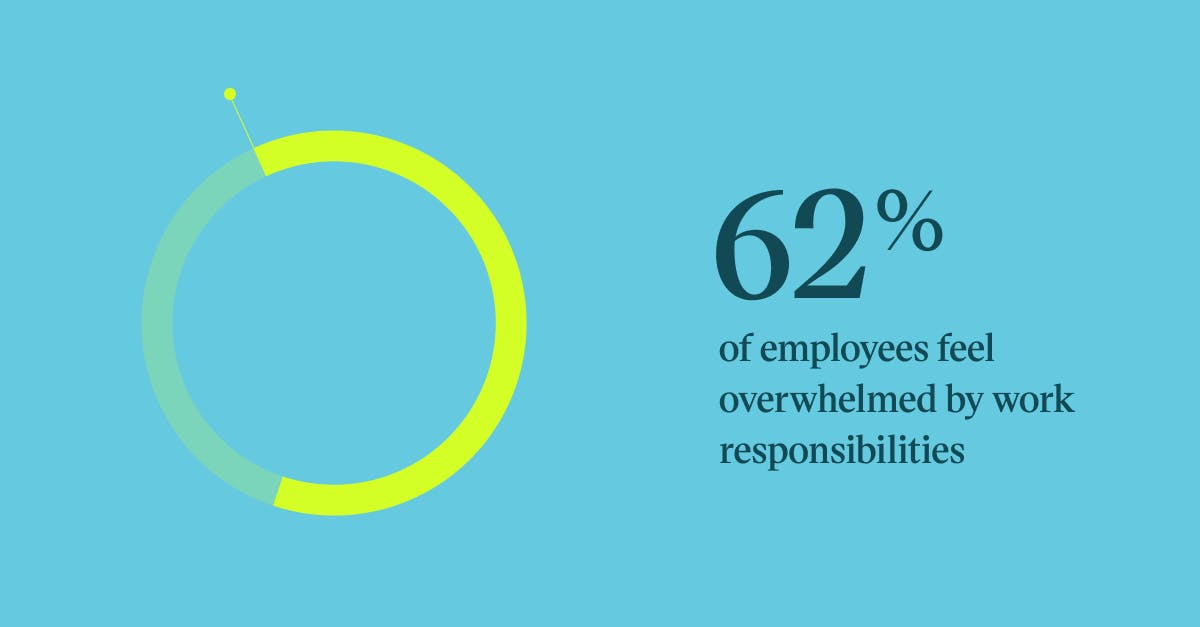
Why the great re-evaluation could define work in 2022

The great resignation caught many people’s attention in 2021. And with good reason, as we saw employees resign in record numbers around the world. However, while the great resignation continues to make waves, 2022 may be better known as the year of the great re-evaluation.
In many ways, the great re-evaluation is a natural progression from the great resignation, as employees begin to re-evaluate what work means in the broader context of their lives. During this period of re-evaluation, factors such as flexibility, hybrid working arrangements, burnout, fatigue, and mental health support are all growing priorities, often supplanting traditional expectations such as salary and upward mobility.
With this in mind, we’ll take a detailed look at the great re-evaluation. We’ll start by asking what the great re-evaluation is, before analysing the factors that may come to define this trend.
Ready to re-evaluate what work means to you? Read on.
What is the great re-evaluation?
The great re-evaluation is a natural extension of the great resignation. The factors that contributed to the great resignation, such as long hours leading to burnout, inflexible working arrangements, and a lack of mental health support, did not exist in a vacuum. Rather, these factors caused employees to re-evaluate what they want in a job and what work means in the broader context of their lives.
As Adecco put it in a recent report analysing the great re-evaluation, “people need to see and feel opportunity. During the last 12 months, people have become more autonomous, agile, adaptable and proactive taking it upon themselves to get new skills. They are ready for change, and they are looking for more agency, career development, mobility opportunities or upskilling and reskilling into the next chapters.”
Similarly, in an interview with Human Resource Executive, IBM CHRO Nickle LaMoreaux urges companies to “look closely at what the Great Resignation is really all about: Employees are taking ownership over what they want from their careers, where and when they want to work, how they want their personal goals and professional purpose to align…it’s their Great Re-evaluation.”
It should come as no surprise that many employees are re-evaluating what they want from a job, especially after COVID-19 dramatically reshaped working arrangements for many companies. Suddenly, hybrid work was the norm, and employees had the chance to ask themselves a few vital questions. How does work fit into my life? Why can’t I have a hybrid working arrangement all the time? Do I need to re-evaluate my work-life balance? Should my company offer more wellbeing support? A lot of the time, employees didn’t like the answers they found. So, they decided it was time for a change.
For instance, 54% of people say they feel overworked, while a massive 95% of human resource leaders say employee burnout sabotages their retention efforts. Moreover, 62% of employees feel overwhelmed by work responsibilities, and 32% say they are emotionally drained at work. Plus, 69% of people feel fatigued at work.

Worryingly, these statistics are only the tip of the iceberg. Research by Limeade found that 40% of employees left their jobs due to burnout during the great resignation. Other common reasons for quitting during the great resignation include: their company was going through organisational changes (34%), lack of flexibility (20%), contributions not being valued (20%), insufficient benefits (19%), and wellbeing not being supported by their company (16%). In the wake of these concerns, it makes sense that employees would need to re-evaluate what work means to them. Is their job really worth the stress and burnout?
Finally, it’s important to note the great re-evaluation is not limited to employees. Businesses must also re-evaluate. Now that these concerns are out in the open, the onus is on companies to reconsider their expectations and address employees' concerns. Those that fail to adapt risk losing their best talent as they seek opportunities elsewhere.
What factors are contributing to the great re-evaluation?
The factors contributing to the great re-evaluation are manifold. From burnout to fatigue to inflexible working arrangements, many workers have decided enough is enough. At the same time, adjustments caused by COVID-19 have opened many people’s eyes to new ways of working.
For example, 76% of employees now want flexibility for where they work, and 93% want flexibility over when they work. What’s more, 41% of employees say they would look for another job if they had to return to the office full time.
These new expectations have led to a disconnect. Adecco finds that 53% of people want to spend more time working from home, yet, only 39% expect they will be allowed to spend more time working from home. Similarly, a Future Forum Pulse global survey found that executives who work remotely are 3x more likely than employees to prefer returning to the office full-time. In contrast, 76% of employees don’t want to return to the office full time.
Disconnects such as these between what employees want and what managers want are driving the great re-evaluation. If companies fail to recognise these disconnects and adjust their expectations, employees will seek opportunities that better align with their hybrid work preferences.
As a result, many workers are crying out for greater flexibility. According to Adecco, “workers want to shift from hours to an outcome-based culture.” Yet, only 36% of non-managers feel their managers assess their performance based on results. Due to this, many employees feel underappreciated. They can't help but wonder: if they aren't being judged on their output, are they in the office simply for the sake of turning up? Given this, a whopping 80% of people believe that increased flexibility around hybrid working would benefit both employers and employees.
Another key factor influencing the great re-evaluation is the belief that it will lead to a fairer and more equitable workplace. Adecco finds that 75% of people believe flexible/hybrid working arrangements will create more opportunities for people with disabilities. Likewise, 73% say it will create more opportunities for working parents, and 69% believe it will create more opportunities for people from diverse backgrounds.
However, the biggest contributing factor to the great re-evaluation is employee burnout. A massive 67% of non-managers say their leaders don't meet their expectations for checking on their mental wellbeing. On the other hand, 51% of managers say they find it challenging to identify when staff are struggling with overwork or burnout. Again, a disconnect arises: 77% of managers say they are satisfied with their performance, compared to just 57% of employees who are happy with their manager’s performance.

What’s more, Gallup found that 57% of workers experienced daily stress, while 38% say they have suffered from burnout during the last 12 months. No wonder many employees have chosen to prioritise their mental health and re-evaluate how much they are willing to put up with at work. As a result, 74% of employees want their company to focus more on staff wellbeing.
As Adecco puts it, “companies must re-evaluate how they can better support and provide wellbeing resources to their employees within the new hybrid working model. Building pro-wellbeing working environments, cultures and skillsets from top to bottom will be key in the next normal.”
Ultimately, the great re-evaluation is being driven by an array of factors — from flexibility to burnout to increased opportunities for traditionally marginalised workers. However, the connective tissue is that many workers have re-evaluated what work means to them and how work fits into their lives.

For a significant portion of the workforce, the answer is that work is no longer their number one priority — especially if it is detrimental to their mental wellbeing or a healthy work-life balance. Rather than shaping their lives around work, employees are now shaping work around their lives. Companies must recognise this trend and answer the call for greater flexibility and increased wellbeing support. Or, they can risk getting left behind in the great re-evaluation.
For more insights, be sure to subscribe to the Go1 newsletter to stay on top of all the latest L&D trends. Or, you can book a demo today to find out how Go1 can support your team’s learning needs.




